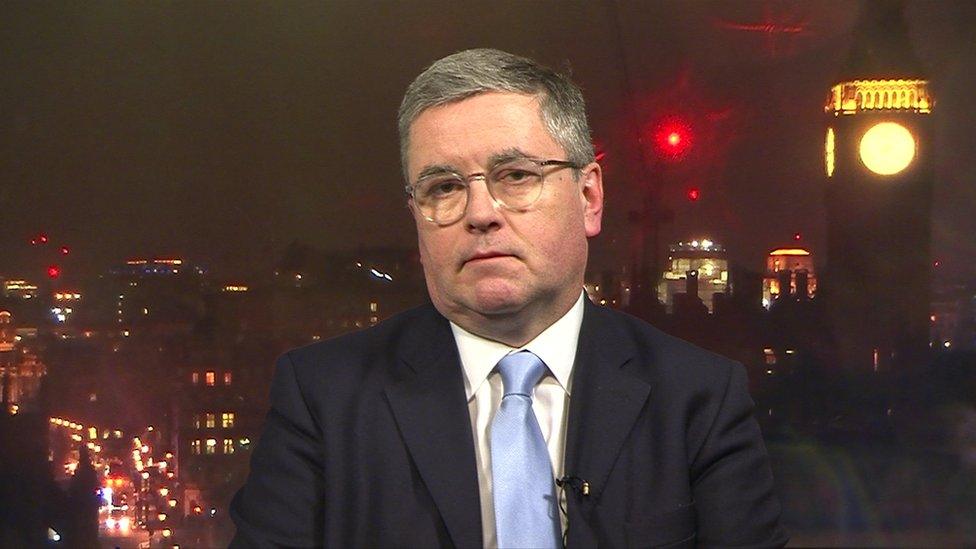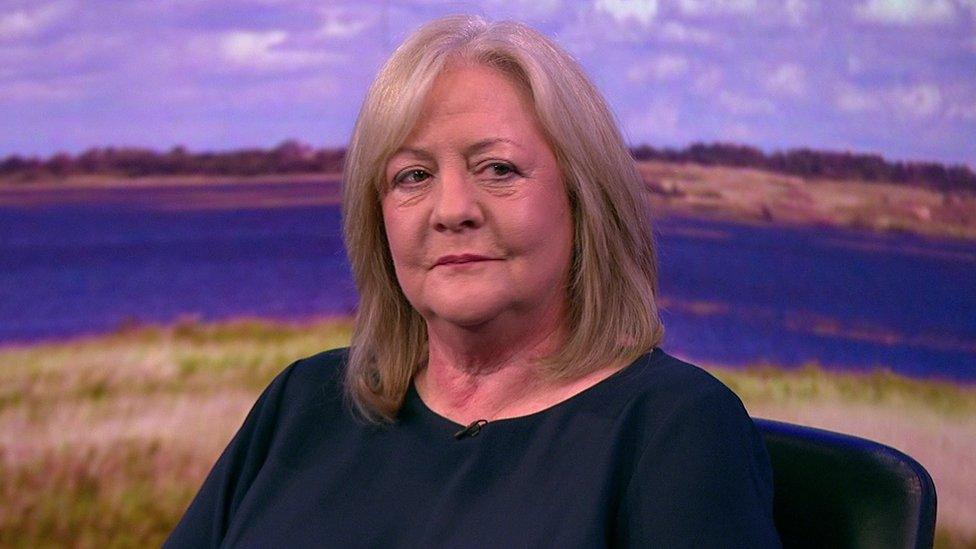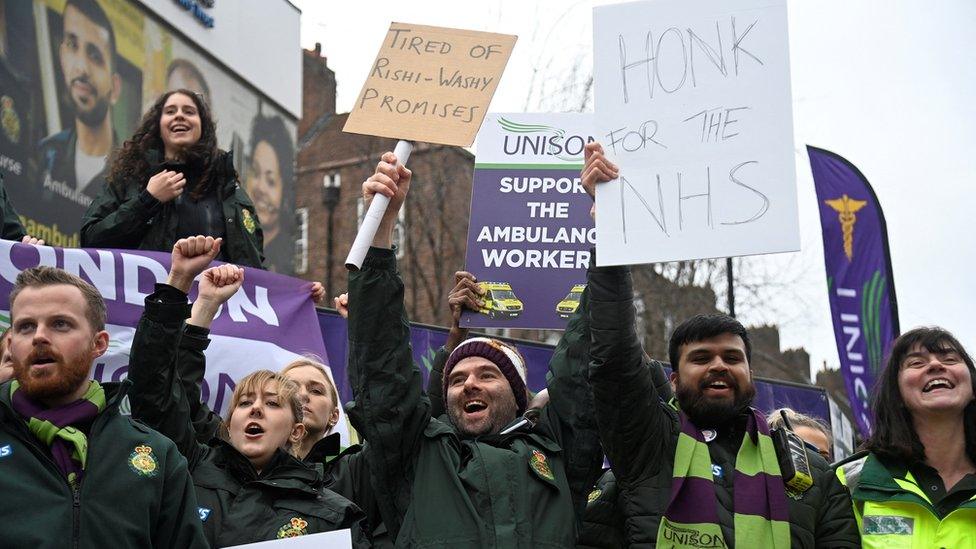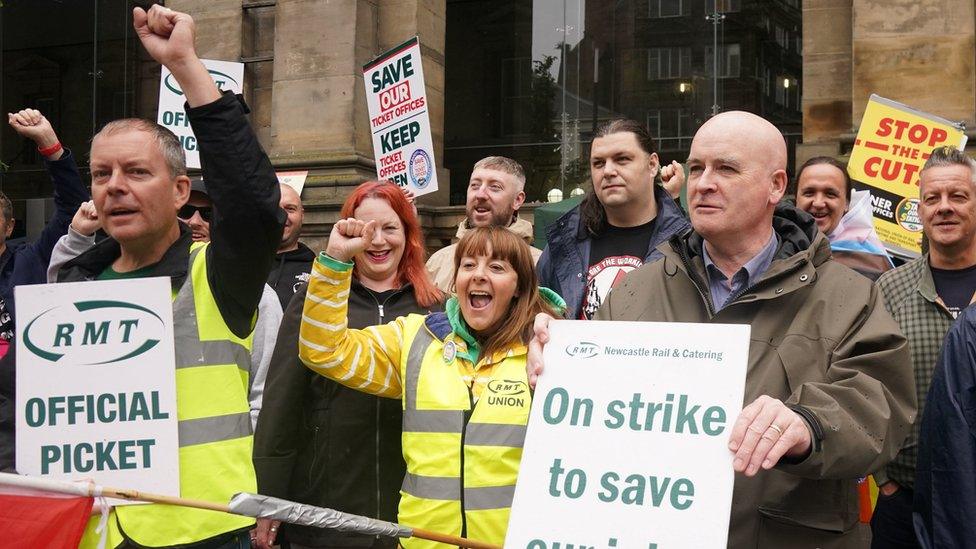NI strike: Minimum service strike law 'should apply to NI', says Buckland
- Published

Thousands of workers across Northern Ireland are expected to strike on 18 January
A Conservative MP has said he believes legislation to provide minimum service levels during strikes should be introduced in Northern Ireland.
Robert Buckland, chair of the Northern Ireland Affairs Committee, said the legislation would help those who are in "dire need" to access services.
Thousands of public service workers are due to strike on Thursday 18 January.
Unions said the introduction of this type of legislation would be an "affront to democracy".
In July, the UK government introduced legislation in England, Wales and Scotland, known as the Strikes (Minimum Service Levels) Act 2023, external.
The legislation means that during a strike a "minimum service" must be provided across a number of sectors including health, education and transport.
Some employees are required to work during industrial action and could be sacked if they refuse.
The legislation does not apply to Northern Ireland.
"My personal view is that minimum service levels guarantee that those in greatest need, whether it be through health emergency or other dire need, will get the service that they deserve," said the chair of the Northern Ireland Affairs Select Committee.

Robert Buckland was speaking on BBC NI's The View programme
"I think that this is not only in the interest of the people we serve but of the trade unions themselves," Mr Buckland continued.
"It will be a devolved matter for the politicians in Northern Ireland."
There was widespread disruption in Northern Ireland in December when transport workers went on strike for four days bringing the transport system to a standstill.
Tens of thousands of workers from across the public sector, including teachers, civil servants and bus and train drivers, are walking out on Thursday over pay.
Unions have billed it as the biggest strike in Northern Ireland's history.
The Department of Health said it is extremely concerned about the impact on services and that hospitals, community care and ambulances will be affected, with some services completely halted.

Carmel Gates says the trade unions would oppose any attempt to introduce the legislation
Carmel Gates, the general secretary of the Northern Ireland Public Service Alliance (Nipsa), said trade unions would fight the introduction of such legislation.
"It is an affront to democracy to curb trade unions and the anti-union legislation that already exists in the UK is the worst of any state worldwide that calls itself a democracy," she said.
Ms Gates added that often on strike days, workers do provide essential services already.
However she stressed that public services in Northern Ireland are "on their knees".
"The current wave of action taken by trade unions is in response to the sanctions imposed by a Tory secretary of state and is in defence of public services," she said.
"It is the Tories and their ilk who are wrecking services as they would love to see public services privatised so that they could profit from it.
"If strikes are becoming more common that means services are under more attack. Rather than saying we should curb trade unions' ability to strike we should challenge what the government is doing to force workers onto picket lines."
'Knee jerk'
Unite's deputy regional secretary, Davy Thompson, said minimum service levels are "the most invidious example of knee jerk legislating this country has seen in a long time".
"They wont work, wont resolve disputes, will harden attitudes, are likely unlawful," he said.
A Northern Ireland Office spokesperson said: "Trade union relations and labour relations are a devolved matter.
"It remains the government's top priority to facilitate the return of the Northern Ireland Executive and a fully functioning assembly, so these important issues can be addressed by those elected to do so."
Related topics
- Published11 January 2024

- Published31 January 2023

- Published6 November 2023

- Published10 September 2023
